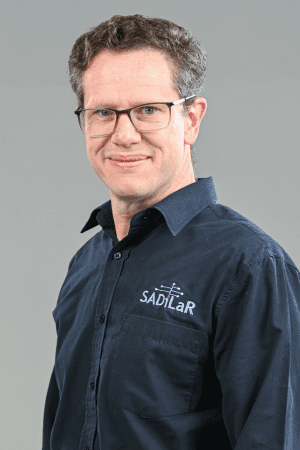28 February 2024
After a fruitful five years as an observer of CLARIN ERIC, South Africa has become an official member of the distributed digital infrastructure as of 1 January 2024. South Africa is the first member country outside of Europe, and SADiLaR is the proud representative body for SA. Currently, CLARIN ERIC has 24 members and two observers.
This milestone aligns impeccably with SADiLaR’s strategic objective of strengthening stakeholder relationships and building mutually beneficial partnerships. The network will therefore extend to increase SADiLaR’s impact in the Digital Humanities space.
About SADiLaR
The South African Centre for Digital Language Resources, hosted by the North-West University, is the first research infrastructure in Africa that promotes indigenous languages and is sponsored by the Department of Science and Innovation (DSI) as part of the South African Research Infrastructure Roadmap (SARIR). The digital research hub has an enabling function, with a focus on all official languages of South Africa, supporting research and development in the domains of language technologies and language-related studies in the humanities and social sciences. The centre supports the creation, management, and distribution of digital language resources, as well as applicable software, which are freely available through the Language Resource Catalogue
SADiLaR comprises several member institutions that are centrally integrated into the functioning of the centre. Each of the partner institutions has a specific specialisation area:
- University of Pretoria (Department of African Languages)
- University of South Africa (Department of African Languages)
- CSIR (HLT Research Group)
- North-West University (CTexT®)
- Inter-Institutional Centre for Language Development and Assessment (ICELDA) and
- Child Language Development Node (Department of General Linguistics at Stellenbosch University)
Vision
SADiLaR’s vision is to stimulate and enable digital research and development in South Africa’s 12 official languages, to cultivate, create awareness and grow DH scholarship in South Africa and the continent, while creating strategic synergies with local and international partners with similar or complementary infrastructure.
Through its affiliation with CLARIN in the last five years, SADiLaR created meaningful connections that have led to collaborations with other entities with a similar mandate. The membership provides access to expertise and standards that help to unify the South African infrastructure with international research systems and best practices.
(Written by Tshego Rapoo-Maloyi)


